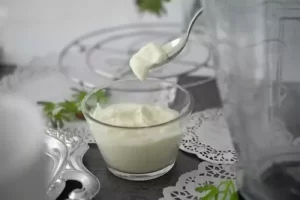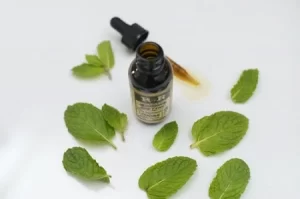11 Best Home Remedies for Allergy
Table of Contents
Overview
Allergies are the immune response of our body against any foreign particle or antigen. As you know that our immune system is responsible for our protection from harmful antigens. كيف تلعب لعبة البوكر But in allergy, even the harmless particles are recognized as threatening, and consequently allergic symptoms developed by the body. Here we will discuss the best home remedies for allergy.
Though various antihistamine medicines are available for allergy, when the symptoms aren’t strong, these remedies can work for you.
Symptoms Of An Allergy
- Irritation and itching
- Runny nose
- Rashes
- Swelling
- Sneezing
- Coughing
These are often experienced by people, and in some conditions, anaphylaxis may happen which is a life-threatening emergency condition. Though, allergy can be easily manageable, sometimes fatal.
Patients with respiratory diseases are at high risk such as any patient with asthma.
The natural way of treating anything lessens the chances of side effects. Here we will discuss the best natural remedies for allergy.
The Best Home Remedies For Allergy
The more you avoid exposure to such allergens, the more you will be protected from harmful responses. Your doctor will also advise you to avoid such environments or wear a mask to prevent pollen from entering.
But allergies differ according to their causes. Such as food allergies, seasonal allergies, drug allergies. Hence the treatments and remedies for all of these are different.
1. Saline irrigation
Saline irrigation helps in washing our dried and thick mucus from the nasal passages. Also, it helps in the enhanced movement of cilia, which cleanses the sinuses. A study in 2012, showed that saline nasal irrigation is beneficial for children as well as for adults with allergic rhinitis often called hay fever.
2. HEPA filters
These are the high-efficiency particulate air filters, which traps airborne particles such as pollen, dust, animal dander. You can use these filters in your home.
3. Probiotics
Probiotics help in raising the number of good bacteria in your gut, thus, helps in boosting immunity. Natural probiotics such as yogurt may help you fight allergic rhinitis.
4. Vitamin c
Sufficient intake of vitamin c helps in reducing the histamine levels, by inhibiting the production of mast cells, and by certain other mechanisms that inhibit the histamine enzymes. It has been found that consuming 2000 milligrams of vitamin C per day will boost your immunity and make you get rid of allergies.
5. Honey
Honey works as an anti-inflammatory and it works by reducing inflammation. Though there is no accurate evidence about the anti-allergic properties. But, honey being an anti-inflammatory ingredient helps you in reducing the swelling.
6. Air conditioners and dehumidifiers
To remove the growth of molds and mildew you should use air conditioners and dehumidifiers to remove out the moisture and inhibit the favorable conditions for the growth of them that can negatively impact you.
7. Stinging nettle
These are the plants with stinging hairs, and this has been used for years to treat the painful muscle and joints and many other effects of allergies. It has been shown to be the best healer in allergy and a natural antihistamine ingredient.
8. Peppermint essential oil
Peppermint oil is known for its anti-inflammatory benefits. It will make your breath easier by applying locally it over your skin by diluting it with some carrier oil.
You can use lemon or lavender oil along with peppermint oil for soothing and relieving combinations of effects.
9. Eucalyptus essential oil
Eucalyptus oil is also in the category of anti-inflammatory ingredients. It may help you with congestion. You need to breathe it while having congestion in the chest followed by inflammation. The soothing sensation you will experience after breathing will relieve you from seasonal allergies.
10. Butterbur
Butterbur is the category of plant that is used for treating various disorders like migraine, emotional distress, and hay fever, or allergic rhinitis. It is an herbal remedy for treating asthma, fever, cold, and many other seasonal allergic reactions. You can use it either in oil or pill form.
11. Frankincense oil
You can blend frankincense oil with eucalyptus oil or other oils, for treating the infection in the upper respiratory tract. And it immediately reduces the symptoms. People reported a reduction in sore throat, cough, and hoarseness. لعب لربح المال
Undoubtedly, these home remedies for allergy will improve your symptoms but there is a condition for people having severe allergies or anaphylaxis. Hence, it is a sensitive procedure for them. How would you know if the condition is severe?
Precautions While Using Home Remedies For Allergy
Well, here are some of the severe symptoms, during which you should not follow these home remedies for allergy.
- Difficulty in breathing
- Chest pain
- Fluctuations in blood pressure
- Dizziness
- Rashes
- Nausea or vomiting
If you experience such symptoms, or anaphylaxis immediately seek medical help.
Though the essential oils used are beneficial, but you never know if you are using the quality product or not. Hence, be sure about the quality first. Mix the oil with a carrier oil and apply it locally on your skin such as forearm skin. If there is no reaction within 24 hours, it is safe to use. Test each essential oil over your skin, whether it suits you or not.
Conclusion
Allergies are common in seasonal changes and may cause mild to severe infections such as hay fever, anaphylaxis, and chest congestion, hoarseness. Treatment of allergies includes medicines and home remedies. Some of the best home remedies for allergy include the use of essential oils such as eucalyptus oil, peppermint oil, frankincense oil combining with other oils like lavender oil or lemon oil will help in relieving the inflammatory symptoms. Apart from it, consuming sufficient amounts of vitamin C and probiotics will help in boosting immunity. Use air conditioners and dehumidifiers to leach out the moisture and inhibit the growth of molds and mildew. Saline irrigation is one of the personal hygiene methods for the nose. Certain herbs are natural healers of the pain during allergy.
Frequently Asked Questions
What helps relieve allergies fast?
You should take an over the counter remedy for relieving allergies fast:-
Oral antihistamines:- antihistamines help in relieving the common symptoms of allergies like sneezing, itching, watery eyes, and runny nose.
Decongestants:- decongestants like pseudoephedrine provide temporary relief from nasal congestion and stiffness.
Nasal spray:- nasal sprays control the secretion of histamines, a chemical that causes allergic symptoms like sneezing and runny nose. It also relieves a stuffy nose.
Combination medications:- these medications include antihistamine and decongestant to relieve different allergic symptoms.
What is a good natural remedy for allergies?
There are some natural remedy for allergies like:-
- Vitamin c like citrus fruits
- Saline nasal rinses
- Probiotics
- High-efficiency particulate air filters
- Honey
- Air conditioners and dehumidifiers
- Peppermint essential oil
- butterbur
Can Allergies Be Cured Naturally?
Yes, allergies can be cured by avoiding allergens how much as possible. Doctors also suggest that you should avoid or limit allergens which are the utmost reason for your allergic reaction. Hence, avoid exposure to the outer environment in the spring season.
What foods are natural antihistamines?
You may find relief by foods and natural plant extract that act as antihistamines. For example, quercetin is naturally present in many herbs and foods, including:-
- Berries
- Apples
- Balck tea
- Grapes
- Green tea
- Buckwheat tea
- Broccoli
- Ginkgo biloba
Is honey good for allergies?
Honey has been subjectively reported to reduce the symptom of seasonal allergies. It works as an anti-inflammatory and reduces inflammation. Although, no accurate evidence has been shown about anti-allergic properties. But overall it helps in getting rid of swelling.
What can I drink for allergies?
If you feel claggy, or have postnasal drip, start consuming more water, juice, or non-alcoholic drinks. The excess of liquid can thin the mucus of your nasal passage and gives you soothing. Drink more hot drinks like tea, coffee, soup, or broth. Take steam once a day.
Will hot shower help allergies?
Yes, the steam from hot showers will help in cleaning your sinuses and giving relief. Hence, always get a hot shower after enjoying the outdoors. A hot shower will give you two benefits, it will clean the allergens from your skin and will clean out your sinuses.
Why do my allergies get bad at night?
During warm temperatures pollen is pushed in the air, while cooler environments fall back down the pollen to cover outdoor surfaces at night. Thus, if you find pollen over your clothes or hair throughout the day, it can cause a bedtime allergy once you are in bed. Also, the nighttime allergy may vary depending on where you stay. The most common culprits like pollen, dust mites, pets, molds, and cockroaches.
What is the best medicine for severe allergies?
The best medicines for severe allergic reactions are antihistamines like levocetirizine or xyzal, cetirizine, loratadine, desloratadine, and fexofenadine. They work by blocking the histamine effects that are responsible for causing allergic reactions itching, swelling, runny nose, and skin rashes.
What can doctors do for severe allergies?
Well, doctors will prescribe you some antiallergic medicines in the form of pills, drops, nasal sprays, liquid, or eye drops. Also, avoidance of allergies will be advised by a doctor. If the condition is still not getting better, you may be suggested immunotherapy.
Allergen immunotherapy:- it is a hypo-sensitization medical treatment that involves exposure to a large number of allergen to change the immune system’s response.
How can I get rid of allergies fast without medicine?
You can take care of few things to get rid of allergies without medicine such as:-
- Limit your outdoors and avoid exposure to such a dusty environment
- Use air conditioners and dehumidifiers at your home
- Shower when you came back from outside
- Keep pets out of your room and make their stay separate from yours
- Use a saline rinse to clean out your nasal passage
- Always take a hot shower before going to bed
- Use some pesticides to kill the molds and cockroaches in your home
What is the best vitamin to take for allergies?
Vitamin C is the best vitamin to take for allergies. Being a good antioxidant and a natural antihistamine it’s excellent for treating allergies. Oxidative stress plays an important role in allergic diseases according to a 2018 study. Vitamin c is a powerful antioxidant as well as a good anti-inflammatory. كازينو العرب 888 It may be a good supplement for treating your allergic reactions.








Pingback: Can Psoriasis Be Cured|Symptoms, Causes, and Treatment - The Health Fact